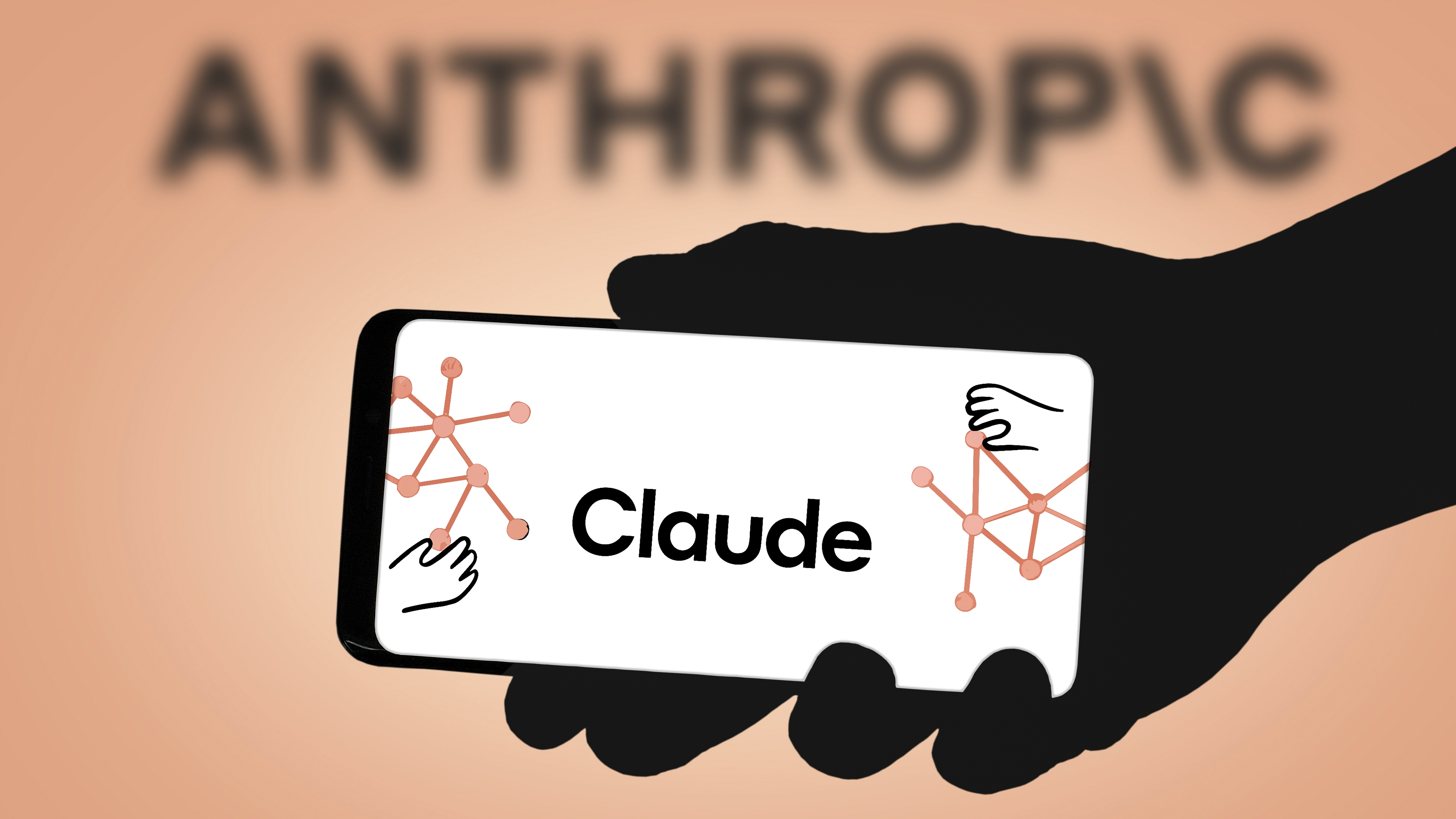'Fallout' TV show is almost perfect — but it’s missing one crucial thing
"Fallout" on Prime Video isn’t New Vegas enough
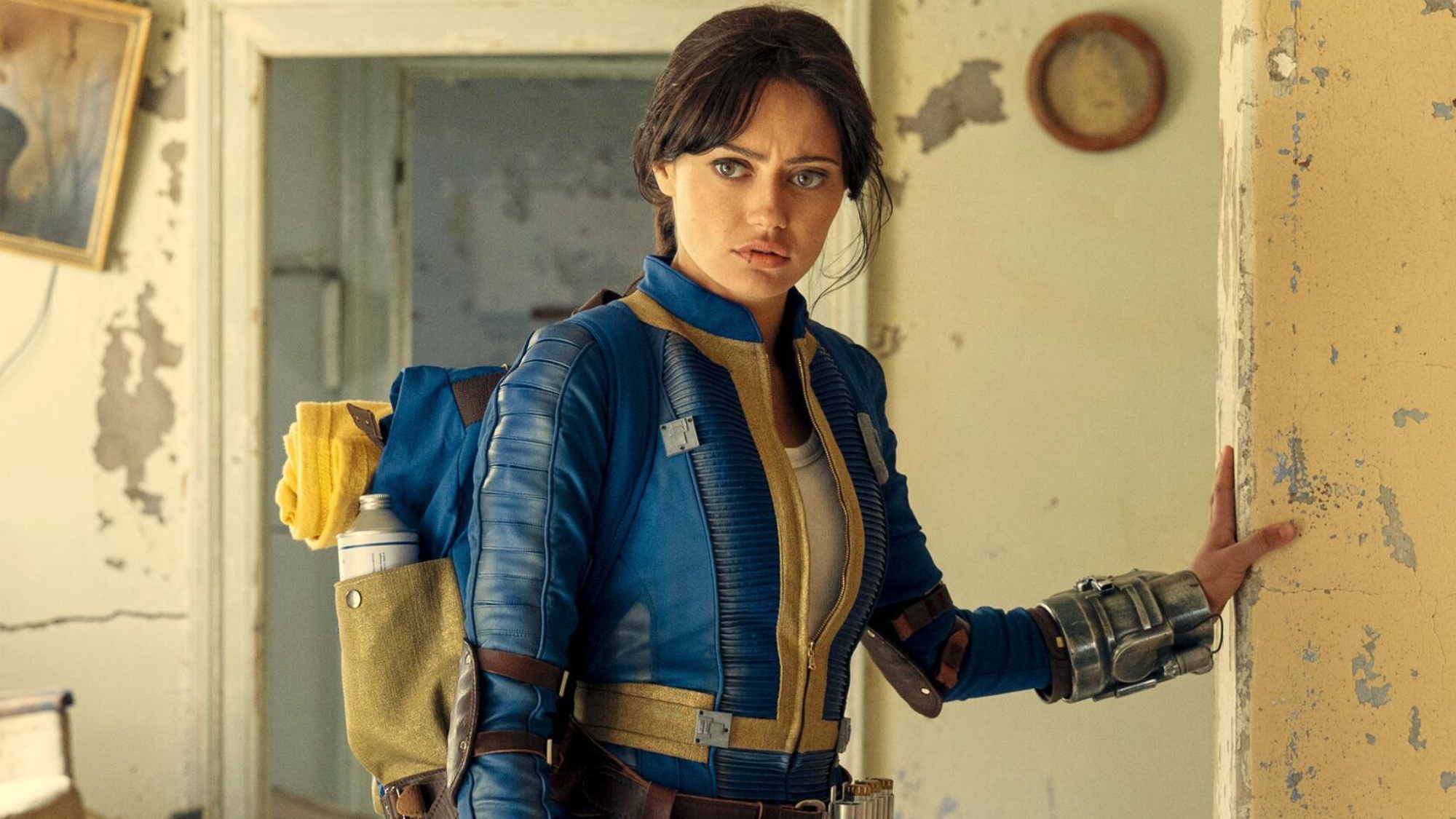
Prime Video’s new “Fallout” TV show is an absolute blast. Based on the best-selling role-playing series of the same name, it’s right up there with “The Last of Us” and “Cyberpunk: Edgerunners” among the best adaptations of a video game ever.
Considering its high quality, I’m not surprised that the show has pulled an impressive 93% on Rotten Tomatoes with critics praising everything from the strong writing to the stellar production design. After debuting earlier this week (Wednesday, April 10), the initial reception from fans of the gaming franchise has been just as glowing.
As a long-time fan of Fallout, I’m equally thrilled with the careful attention to detail and clear respect this Amazon show pays to the source material. But, if I’m being honest, after watching the first four episodes, there is one key element missing.
Prime Video’s “Fallout” show is excellent, but I wish it took a few more cues from the very best game in the franchise, Fallout: New Vegas.
A morally gray wasteland
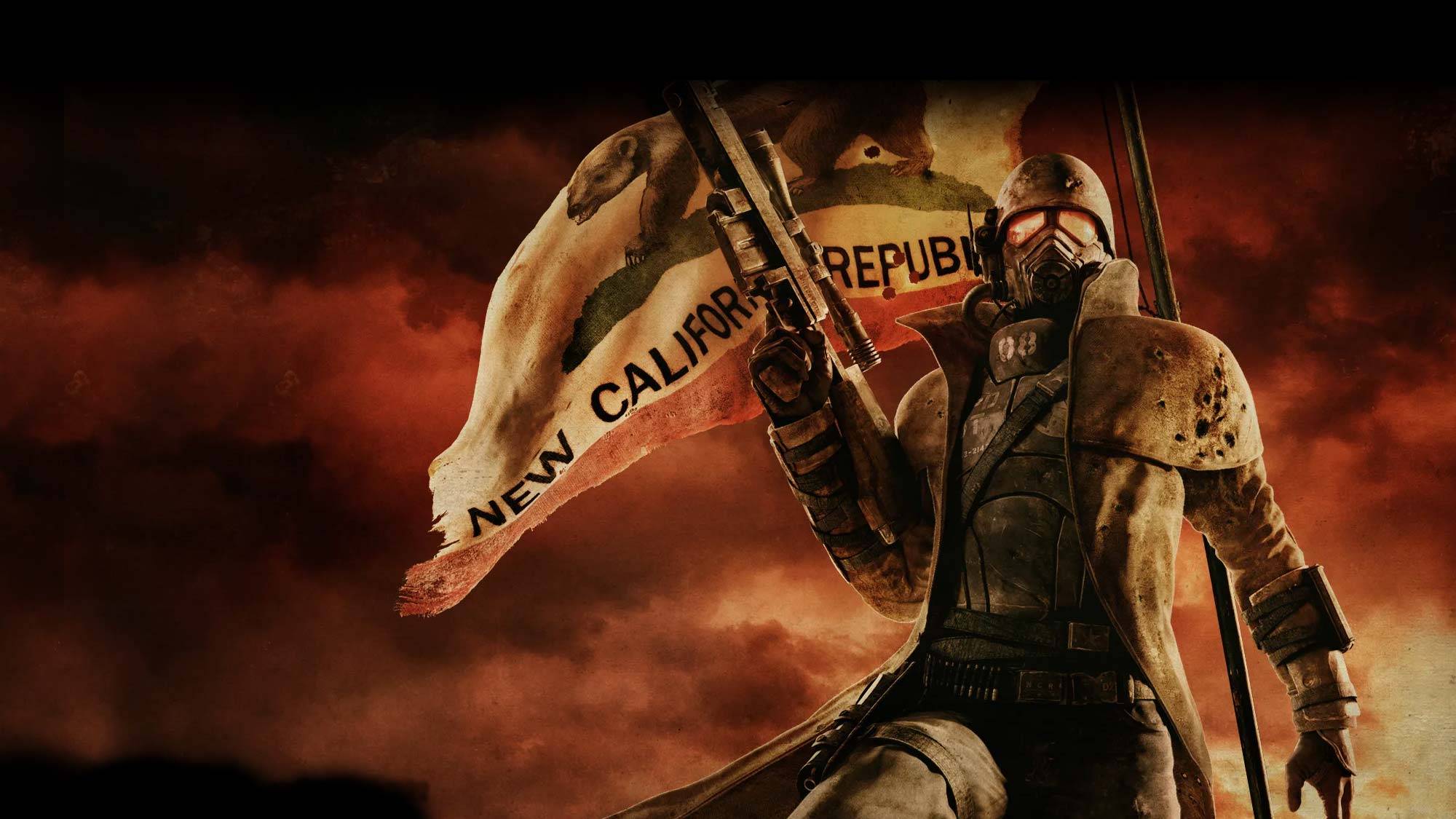
Released in 2010, and developed by Obsidian Entertainment, Fallout New Vegas was pitched as a spin-off to tide fans over between mainline the Fallout games created by Bethesda Game Studios, but instead of creating an interstitial sequel to fill the void between Fallout 3 and 4, Obsidian made the crown jewel of the franchise.
Set in the Mojave Wasteland, with the eponymous neon-lit New Vegas strip at its center, Fallout New Vegas offered all the RPG trappings of its predecessor, alongside largely functional shooter gameplay. What sets New Vegas apart is its phenomenal writing. Even 14 years later, it remains one of the best-written video games ever.
You play a courier delivering a package to an unnamed recipient in New Vegas but are prevented from completing job through when you are accosted by a mobster named Benny (voiced by the late Matthew Perry) and left for dead out in the desert. You survive this ordeal and venture out into the wasteland to find out what is so special about this package and end up in the middle of a three-way faction war.
Get instant access to breaking news, the hottest reviews, great deals and helpful tips.
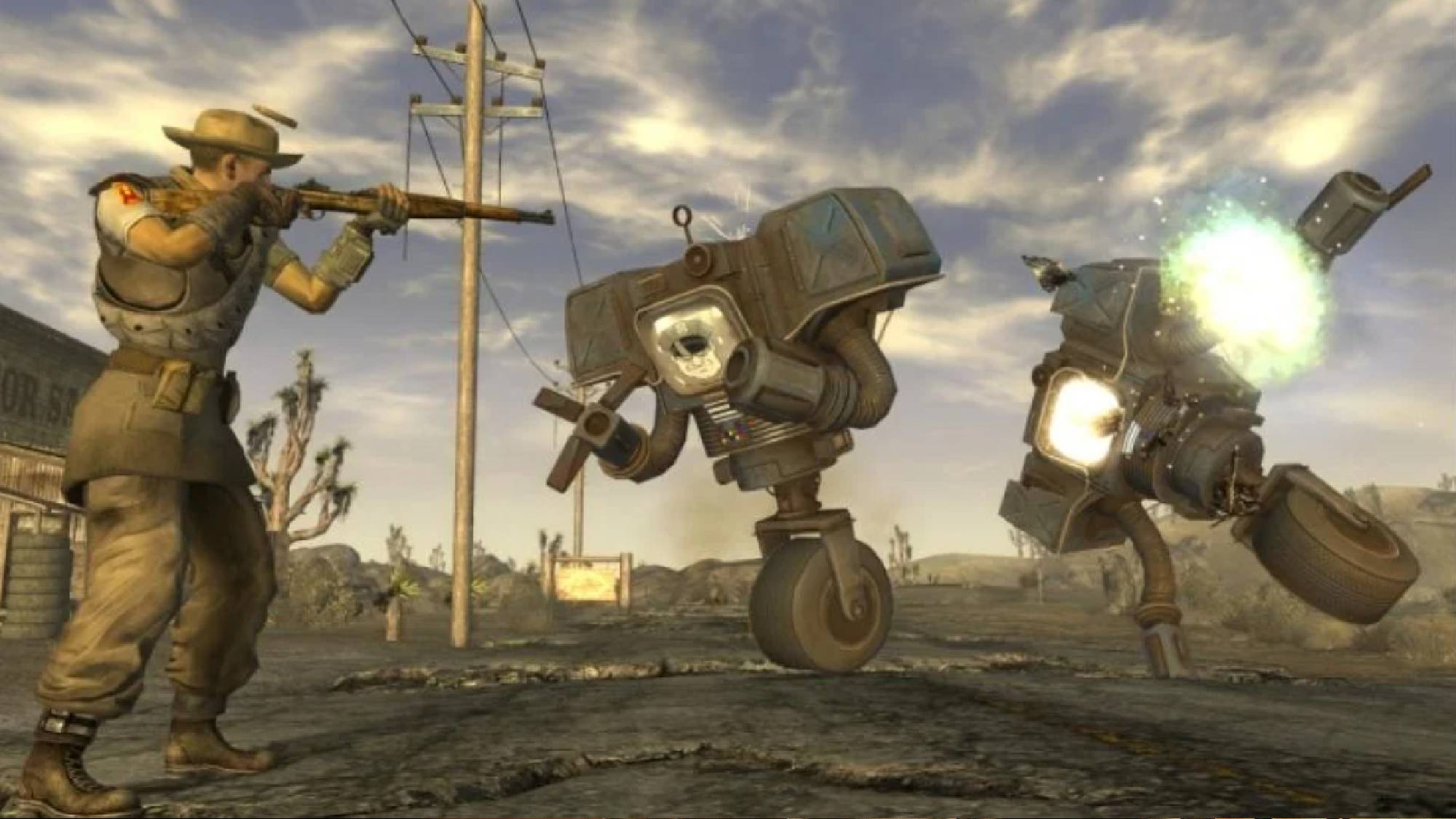
New Vegas’ story, both in its main quests and side missions, is so compelling because many of its characters and the situation you are presented with are rarely black-and-white. Yes, the game features a gamified karma system, so actions are technically judged to be “good” or “evil” and move you up or down a morality scale, but it’s not always easy to know which decision is which. And that’s super engaging.
The “Fallout” TV show instead plays things a little more obvious. In this small-screen take on Fallout’s harsh and unforgiving wasteland, the characters we meet fall into standard archetypes. After four episodes, I’d feel pretty comfortable, classifying each member of the cast as either a “hero” or a “villain”, at least when speaking broadly.
Heck, even the main character presented as a little more morally ambitious , The Ghoul (Walton Goggins), appear to be set for a predictable redemption arch by the end of the first season. The other two leads, Ella Purnell’s Lucy and Aaron Moten’s Maximus are already on the good side of the scale, with viewers supposed to like and root for them right off the bat (if you can excuse Maximus' razer blade stunt).
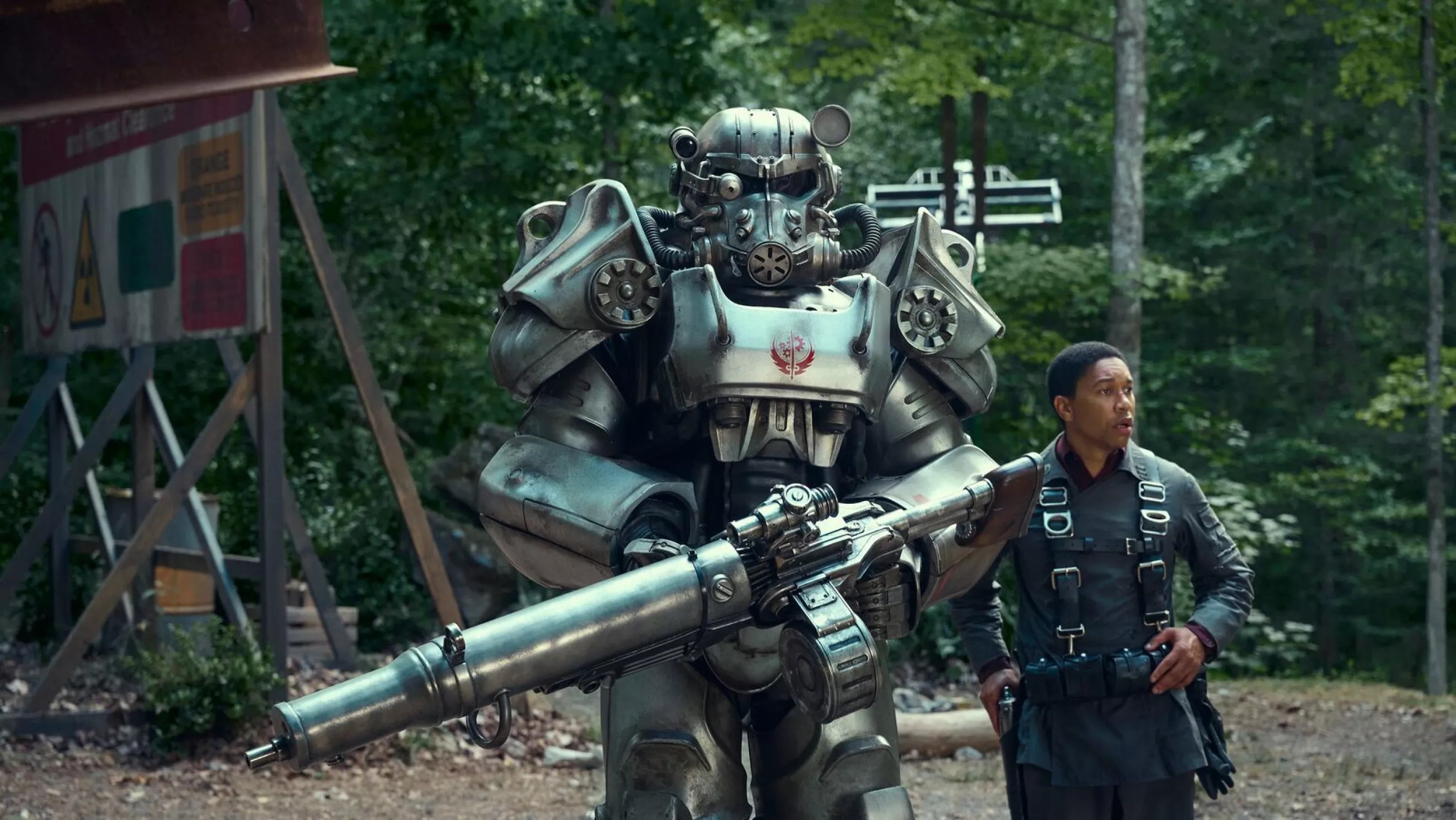
What's even more frustrating is "Fallout" has moments in its first four episodes where it could explore the thin line between "good" and "evil" but it doesn't fully commit.
For example, in episode 3, the Vault 33 survivors try to decide what to do with a group of raiders that they’ve captured as keeping them perpetually as prisoners is costing them resources they cannot afford to spare. I was pleased to see this plot point develop, thinking it could lead to some tricky moral questions, but that doesn't happen, probably because the raiders are presented as downright comically evil.
Another example comes in the very first episode, when Vault 33 Overseer Hank MacLean (Kyle MacLachlan) is forced to pick between saving his daughter or a group of vault-citizens. He chooses to save his daughter calling her this "world", and then the other vault-dwellers in danger just sort of turn out fine in the end. It's a cop-out moment and prevents a proper exploration of the morality of Hank's decision.
Fallout is still utterly fantastic
Even though I’d love to see “Fallout” embrace moral ambiguity a little more in the back half of its first season, or in a potential “Fallout” season 2, I should stress this is really just a minor quibble, and is massively outweighed by all the things that I love.
“Fallout” on Prime Video expertly translates the iconic retro-futurism of the franchise (the production design is truly remarkable) , and nails the darkly comedic tone. I was excited to see the world of “Fallout” brought to the small screen, but I never imagined it would translate this well. And it helps that the very sharp writing has hit the perfect tone perfectly blending the ultra-violence with deadpan comedic gags.
“Fallout” is a very special series, and the current frontrunner for my favorite show of the year. On balance, it’s easy to forgive a pretty small criticism like it not being quite morally gray enough to my taste when it gets almost everything else so very right.
More from Tom's Guide
- 'Fallout' reviews are in for Prime Video — and it’s 91% on Rotten Tomatoes
- Amazon Prime members get Fallout 76 for free on PC and console
- 7 new movies and shows to watch this weekend on Netflix, Prime Video and more

Rory is a Senior Entertainment Editor at Tom’s Guide based in the UK. He covers a wide range of topics but with a particular focus on gaming and streaming. When he’s not reviewing the latest games, searching for hidden gems on Netflix, or writing hot takes on new gaming hardware, TV shows and movies, he can be found attending music festivals and getting far too emotionally invested in his favorite football team.
 Club Benefits
Club Benefits





